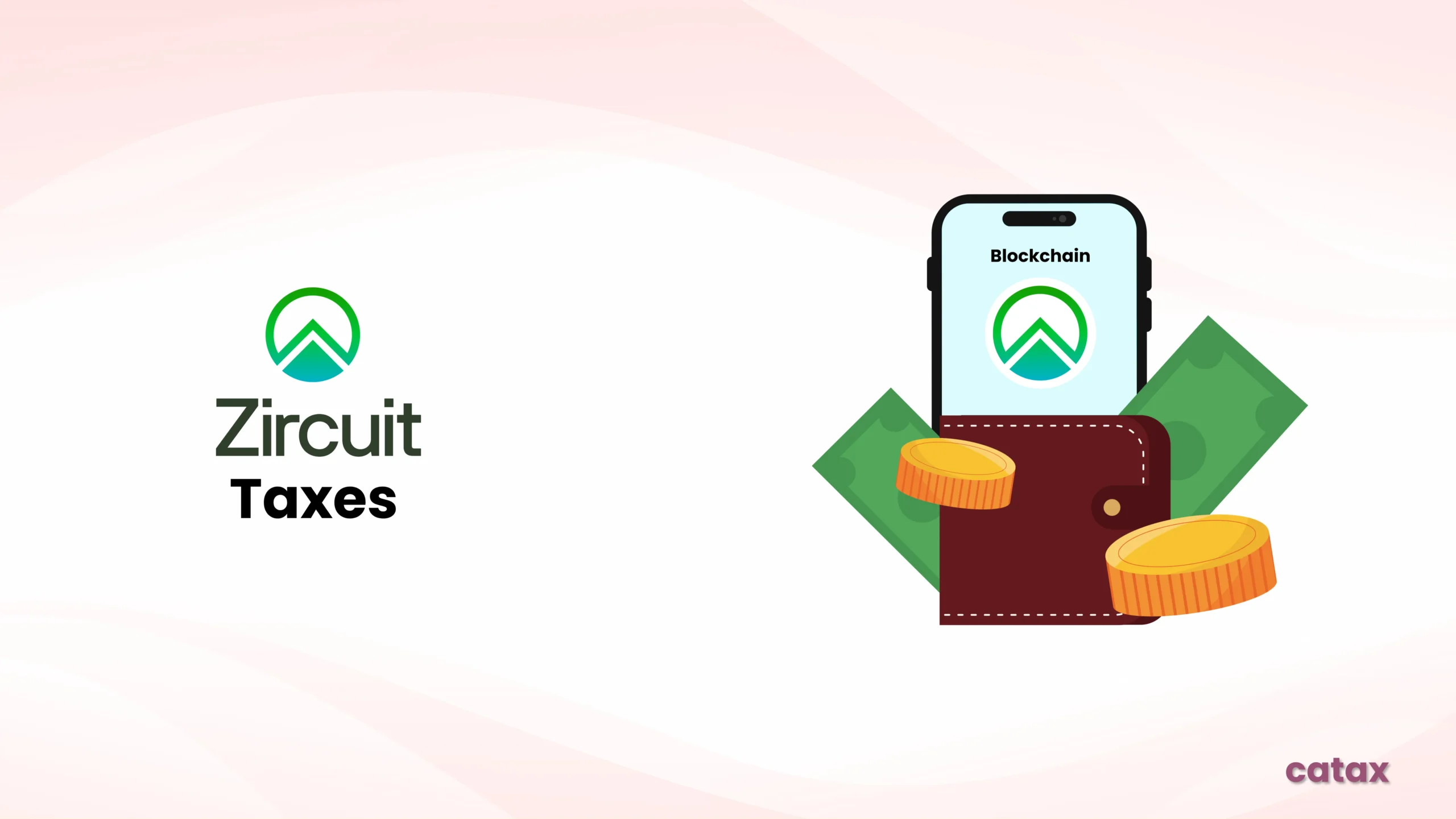Cryptocurrency tax rules differ across countries, and Zircuit taxes transactions may be taxed differently based on local regulations. Whether you buy, sell, trade, or stake Zircuit tokens, understanding how tax authorities classify these activities helps you remain compliant and avoid penalties.
This guide simplifies Zircuit tax rules so you can handle your crypto taxes confidently and stay legally protected.

How to Connect Your Zircuit Wallet to Catax?
To effortlessly track your Zircuit transactions and calculate taxes, follow these steps to connect your wallet to Catax:
- Open your Zircuit wallet or access a supported block explorer that tracks Zircuit transactions.
- Copy your public Zircuit wallet address from the wallet interface.
On Catax:
- Log in and select your country.
- Choose Chain, then search for Zircuit Wallet.
- Paste your public address and click Connect.
Once connected, Catax will automatically import your Zircuit transactions, making crypto tax tracking and reporting simple and stress-free.
Calculate My Taxes ➤Are Zircuit Transactions Taxable?
Yes, in most countries, Zircuit transactions are taxable. Tax authorities may classify Zircuit tokens as a capital asset, property, or income depending on how they are used.
When Do You Have to Pay Taxes on Zircuit?
You may be liable to pay taxes when you:
- Sell Zircuit tokens for a profit – If you sell Zircuit for more than your purchase price, the gain is typically subject to capital gains tax.
- Trade Zircuit for another cryptocurrency – Exchanging Zircuit for Bitcoin, Ethereum, or any other crypto may trigger a taxable event.
- Use Zircuit for purchases – Paying for goods or services with Zircuit may result in a taxable gain if the token has increased in value.
- Earn Zircuit through staking – Staking rewards in the form of Zircuit are usually treated as income and taxed at the time they are received.
- Receive Zircuit as payment – If you’re paid in Zircuit for providing goods or services, the value received is generally taxed as income at the market rate when received.
Since tax treatment varies by country, always check your local crypto tax laws to understand your obligations.
Can You Deduct Trading Fees and Other Costs?
Zircuit users often ask whether they can deduct costs associated with trading or managing their tokens. The answer depends on your local tax regulations.
In some countries, you can deduct:
- Trading fees from buying or selling Zircuit
- Network/transaction fees for transferring Zircuit between wallets
Other jurisdictions may allow only:
- The cost basis of the Zircuit tokens (original purchase price) without additional deductions for fees or tools.
Review your local tax codes to understand which deductions apply to your situation.0
How Is Zircuit Taxed Based on Holding Period?
Your tax rate on profits from Zircuit can depend on how long you held the tokens:
- Short-term holdings (less than one year) – Usually taxed at standard income tax rates.
- Long-term holdings (more than one year) – Some countries offer reduced tax rates for long-term crypto gains.
- Flat-rate systems – In some places, a fixed tax rate applies regardless of the holding period.
Understanding your local tax rules will help you plan a tax-efficient strategy and reduce your tax burden where possible.
You can also check out our Country-Specific Guide for Crypto in Your country. This guide provides insights on regulations, tax implications, and compliance measures breifly explained for each country.
How Is Staking Income Taxed?
Staking Zircuit (ZRC) tokens can generate passive income, but how that income is taxed depends on your country’s tax laws. Some countries tax staking rewards as soon as you receive them, while others only apply taxes when you sell or exchange the rewards.
How Countries Tax Staking Rewards
- Taxed as income – In many jurisdictions, staking rewards are treated like regular income. This means you’ll be taxed on the value of the ZRC tokens when you receive them, using standard income tax rates.
- Taxed as capital gains – In other regions, taxes only apply when you sell your staking rewards. You’ll owe tax only on the profit made between receiving and selling the ZRC tokens.
If you stake ZRC, knowing your country’s tax approach helps you plan for tax liabilities—even if you haven’t sold your tokens yet.
Always check your country’s rules before staking Zircuit to avoid unexpected tax obligations.
Can You Claim Zircuit (ZRC) Losses for Tax Benefits?
Not every trade results in a gain. If you sell ZRC at a loss, you might be able to use that loss to reduce your tax bill. Here’s how different tax systems handle crypto losses:
- Loss offsets – Some countries allow you to use crypto losses to offset other capital gains, so you’re only taxed on your net profits.
- Loss carryforward – If you didn’t earn enough profits this year, some governments let you carry forward losses to offset future gains.
- Limited or no deductions – In some places, crypto losses cannot be deducted, meaning you won’t receive any tax relief.
Keep detailed records of your ZRC trades and transactions to report losses accurately and claim tax benefits where applicable.
How to Stay Compliant with Zircuit (ZRC) Tax Rules?
As crypto regulations evolve, staying compliant is crucial. To avoid penalties and confusion:
- Identify how your country classifies Zircuit transactions — whether as income, capital gains, or business income.
- Verify which deductions you can claim — including trading fees, staking rewards, network fees, and storage costs.
- Maintain complete records – Keep logs of every Zircuit (ZRC) transaction, including buying, selling, staking, and transfers.
- Use a crypto tax platform like Catax – Catax automatically tracks your ZRC transactions and simplifies your tax filings.
- Consult a tax professional – If you’re uncertain about your tax obligations, a qualified expert can guide you through local laws and best practices.
By staying informed and organized, you can manage your Zircuit taxes effectively and avoid costly errors.
Book a Free Consultation Now →

